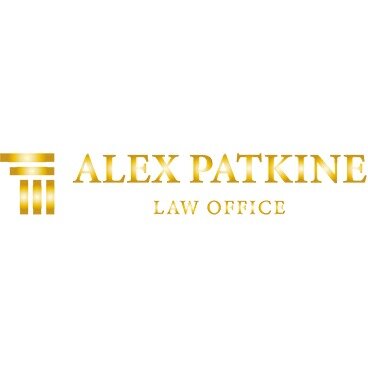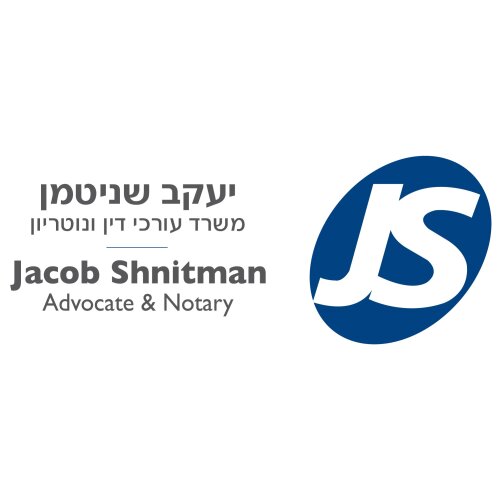Best Public-Private Partnerships (PPP) Lawyers in Haifa
Share your needs with us, get contacted by law firms.
Free. Takes 2 min.
List of the best lawyers in Haifa, Israel
About Public-Private Partnerships (PPP) Law in Haifa, Israel
Public-Private Partnerships (PPP) are collaborative agreements between government entities and private sector companies, aimed at delivering public services, infrastructure, or facilities. In Haifa, PPPs are used in a variety of fields such as transportation, urban development, education, and healthcare. These projects allow the municipality to leverage private sector expertise and capital while still maintaining public oversight and accountability.
PPP agreements in Haifa follow both national Israeli legislation and local municipal policies. These arrangements have become increasingly popular for large-scale infrastructure developments that require significant investment, risk management, and specialized knowledge that might not be readily available within the public sector alone. Understanding PPP laws in Haifa is crucial for entities looking to engage in these ventures, as they must comply with a mix of legal, regulatory, and practical requirements.
Why You May Need a Lawyer
Engaging in a PPP in Haifa involves several complex legal matters, ranging from contract negotiation to compliance with public procurement laws. Here are some common situations where legal assistance is essential:
- Drafting and negotiating PPP agreements with public authorities or private companies
- Ensuring compliance with local, regional, and national procurement and administrative laws
- Handling disputes or claims arising out of the partnership, such as breaches of contract or delays
- Advising on regulatory issues and navigating required permits and licenses
- Assisting with tendering processes and managing competition law considerations
- Managing risk allocation, financing structures, and performance guarantees
- Counseling on tax implications and public financing frameworks
A lawyer experienced in PPPs in Haifa can guide you through each step, helping you avoid costly mistakes and optimizing your project's potential for success.
Local Laws Overview
In Haifa, PPPs are governed by a combination of national and municipal laws. Key regulations include the Israeli Tender Law, municipal ordinances, and sector-specific guidelines (for example, in transportation or healthcare). Here are several local legal aspects particularly relevant to PPPs in Haifa:
- Procurement Process: Initiating a PPP requires adherence to transparent and competitive bidding processes.
- Contractual Terms: PPP agreements must specify roles, responsibilities, investment amounts, performance criteria, and risk-sharing mechanisms.
- Municipal Oversight: Haifa Municipality often has dedicated PPP units or committees that supervise and approve projects to ensure they provide public benefit and financial sustainability.
- Project Duration and Termination: Laws govern the lifespan of PPP projects and provide mechanisms for early termination or handover of assets at the end of the term.
- Land Use and Zoning: Many PPPs involve construction or development, which requires compliance with zoning regulations and environmental laws in Haifa.
- Financial Regulations: There are rules concerning public funds, guarantees, and private investment participation, including required disclosures and accountability standards.
These local laws are subject to frequent updates, so thorough legal guidance is necessary for compliance.
Frequently Asked Questions
What is a Public-Private Partnership (PPP)?
A PPP is a legal and contractual collaboration between a public authority and a private sector entity to deliver public infrastructure or services.
Why are PPPs used in Haifa?
PPPs provide access to private funding, innovation, and technical skills, addressing public needs more efficiently than the public sector could alone.
How are PPP projects selected in Haifa?
Projects are generally selected through a competitive tendering process, based on public needs, budget considerations, and the potential for successful private collaboration.
What risks are involved in PPP projects?
Risks can include financial exposure, construction delays, operational failures, regulatory changes, and disputes between partners. Legal advice helps identify and manage these risks.
What role does the Haifa Municipality play in PPPs?
The municipality oversees the planning, approval, and monitoring of PPP projects. It ensures projects adhere to laws and serve the public interest.
How long do PPP agreements typically last in Haifa?
PPPs can range from several years to a few decades, depending on the project's scale and the investment involved.
Can foreign companies participate in PPPs in Haifa?
Yes, foreign entities may participate if they comply with relevant Israeli laws, including corporate registration and tender requirements.
Are there specific taxes or financial obligations for PPP participants?
Yes, participants must consider corporate taxes, VAT, and other financial obligations as part of project planning and agreement drafting.
How are disputes in PPPs resolved?
Most PPP agreements include dispute resolution clauses, which may involve negotiation, mediation, arbitration, or litigation in Israeli courts.
What happens at the end of a PPP project?
At the end of a PPP term, assets or facilities often revert to public ownership, unless otherwise agreed in the contract.
Additional Resources
For more information or support, you may consult the following:
- Haifa Municipality PPP and Business Development Departments
- Israel Ministry of Finance - PPP Unit
- Israel Bar Association - Section on Public Law
- Israel Builders Association
- Local chambers of commerce
- Reputable law firms in Haifa specializing in public and administrative law
These organizations can provide further guidance, up-to-date regulations, and legal resources relevant to PPPs.
Next Steps
If you are considering involvement in a PPP project in Haifa or need legal advice regarding an existing partnership, follow these steps:
- Identify the specific nature and scope of your PPP interest or challenge
- Gather all relevant documents, including existing contracts, correspondence, and financial plans
- Contact a qualified lawyer or law firm with experience in PPPs in Haifa
- Prepare a list of questions and concerns for your initial consultation
- Stay informed about changes in regulatory or procurement requirements
Choosing the right legal advisor helps navigate the complexities of PPPs, ensures compliance with all local and national laws, and protects your interests throughout the life of your project.
Lawzana helps you find the best lawyers and law firms in Haifa through a curated and pre-screened list of qualified legal professionals. Our platform offers rankings and detailed profiles of attorneys and law firms, allowing you to compare based on practice areas, including Public-Private Partnerships (PPP), experience, and client feedback.
Each profile includes a description of the firm's areas of practice, client reviews, team members and partners, year of establishment, spoken languages, office locations, contact information, social media presence, and any published articles or resources. Most firms on our platform speak English and are experienced in both local and international legal matters.
Get a quote from top-rated law firms in Haifa, Israel — quickly, securely, and without unnecessary hassle.
Disclaimer:
The information provided on this page is for general informational purposes only and does not constitute legal advice. While we strive to ensure the accuracy and relevance of the content, legal information may change over time, and interpretations of the law can vary. You should always consult with a qualified legal professional for advice specific to your situation.
We disclaim all liability for actions taken or not taken based on the content of this page. If you believe any information is incorrect or outdated, please contact us, and we will review and update it where appropriate.















